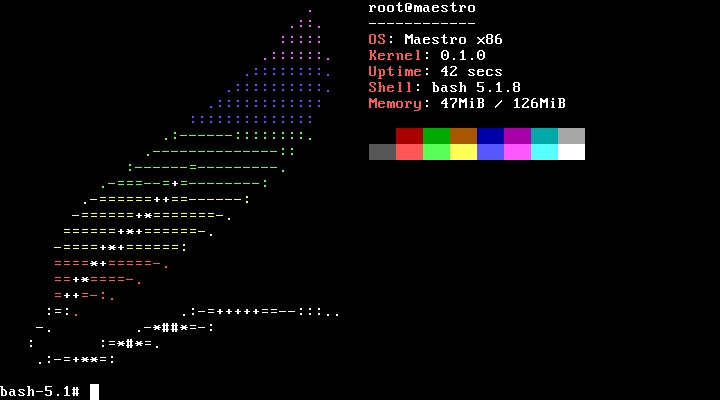Enter Maestro, a unix-like monolithic kernel that aims to be compatible with Linux in order to ensure wide compatibility. Interestingly, it is written in Rust. It includes Solfége, a boot system and daemon manager, maestro-utils, which is a collection of system utility commands, and blimp, a package manager. According to Luc, it’s creator, the following third-party software has been tested and is working on the OS: musl (C standard library), bash, Some GNU coreutils commands such as ls, cat, mkdir, rm, rmdir, uname, whoami, etc… neofetch (a patched version, since the original neofetch does not know about the OS). If you want to test it out, fire up a VM with at least 1 GB of ram.



Here’s the summary for the wikipedia article you mentioned in your comment:
Thread safety is a computer programming concept applicable to multi-threaded code. Thread-safe code only manipulates shared data structures in a manner that ensures that all threads behave properly and fulfill their design specifications without unintended interaction. There are various strategies for making thread-safe data structures.A program may execute code in several threads simultaneously in a shared address space where each of those threads has access to virtually all of the memory of every other thread. Thread safety is a property that allows code to run in multithreaded environments by re-establishing some of the correspondences between the actual flow of control and the text of the program, by means of synchronization.article | about